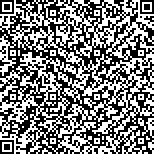| 摘要: |
| 海洋科学的发展离不开精确的数据,然而各种海洋观测仪器在复杂的海洋环境中作业难免产生测量误差,导致观测数据需要进行实时(或延时)质量控制。中国Argo计划在搭载多个航次布放剖面浮标的同时,对航次中获取的船载CTD(conductivity,temperature,and depth)仪观测资料、自动剖面浮标观测资料以及实验室高精度盐度计测量数据进行了实时比对。分析结果显示,利用实验室高精度盐度计对现场观测数据尤其是船载CTD仪观测资料进行质量控制,于温盐数据(特别是深层)的实时/延时校正非常重要;如某航次未经标定的船载CTD仪所测1000dbar以深范围内海水盐度,与实验室高精度盐度计的差值达到±0.1左右,远远落后于国内海洋调查规范对盐度准确度±0.02的一级测量要求,该具体实例更加突显了船载CTD仪在航次前后送往权威部门进行检测的必要性和重要性,从而确保每个航次获取的CTD资料的质量。建议有条件的情况下,在进行深海大洋船载CTD仪观测时要进行现场实验室高精度盐度计的质量控制工作及比对试验,以提高我国深海大洋观测数据的质量。 |
| 关键词: 自动剖面浮标 船载CTD仪 实验室高精度盐度计 资料质量 |
| DOI:10.11693/hyhz20180400099 |
| 分类号:P714+.1 |
| 基金项目:中央级公益性科研院所基本科研业务费专项资金资助项目,JG1812号,JG1710号,JG1713号;国家自然科学基金委青年基金项目,41406022号,41606003号。 |
|
| PRELIMINARY QUALITY DISCUSSION BETWEEN SHIP-BASED CTD AND PROFILING FLOATS OBSERVATIONAL DATA |
|
WU Xiao-Fen1, ZHOU Hui2, CAO Min-Jie1, LIU Zeng-Hong1, SUN Chao-Hui1, LU Shao-Lei1
|
|
1.State Key Laboratory of Satellite Ocean Environment Dynamics, the Second Institute of Oceanography, MNR, Hangzhou 310012, China;2.Key Laboratory of Ocean Circulation and Waves, Institute of Oceanography, Chinese Academy of Science, Qingdao 266071, China
|
| Abstract: |
| It is well known that the development of marine science depends on accurate data, however, a variety of marine observation instrument that work in complicated ocean environments may unavoidably produce measurement error, lead to the need for real-time (or delayed mode) data quality control. This article mainly gives a real-time contrast among the data collected by ship-based CTD instruments, Argo profiling floats and high-precision laboratory salinometer after two voyages carried by China Argo program. Analysis results show that the data inspection through laboratory salinometer is very important for in-situ observational data, especially for the ship-based CTD observations, and is thus vital for the calibration of temperature or salinity data, especially for deep ocean. Just like the comparison gave, the salinity near 1000 dbar acquired by a ship-based CTD which was not calibrated before the voyage, has a differential of nearly ±0.1 compared with laboratory salinometer observation. Such lags are far behind the accuracy of ±0.02 salinity measurement requirement in the domestic ocean survey specification. Based on these tests, we suggest that researchers who are engaged in the open ocean survey should give a focus on the data quality control with different instruments, for example, the ship-based CTD should be sent to authoritative department for calibration before and after a cruise, in order to promote and improve the quality of the national marine observational dataset. |
| Key words: profiling floats ship-based CTD laboratory high precision salinometer data quality |
